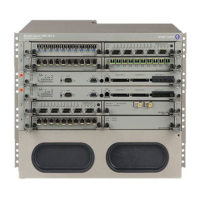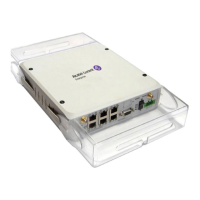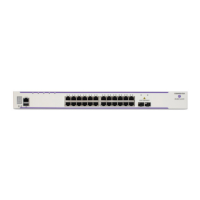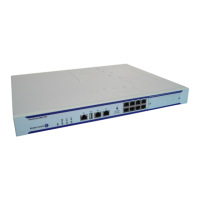Configuration Commands
Page 324 7750 SR OS Interface Configuration Guide
Description This command enables the context to define optional queue parameter overrides for each queue
within the queue group.
queue
Syntax queue queue-id [queue-type] [create]
no queue queue-id
Context config>port>ethernet>access>egr>qgrp>qover
config>port>ethernet>access>ing>qgrp>qover
config>port>eth>network>egr>qgrp>qover
Description This command associates a queue for use in a queue group template. The defined queue-id acts as a
repository for the default parameters for the queue. The template queue is created on each queue-
group object which is created with the queue group template name. Each queue is identified within
the template by a queue-id number. The template ensures that all queue groups created with the
template’s name will have the same queue-ids providing a uniform structure for the forwarding class
redirection commands in the SAP egress QoS policies. The parameters within the template queue will
be used as the default settings for each queue in the actual queue group. The queue parameters may
be individually changed for each queue in each queue group using per queue overrides.
The no form of the command removes the queue-id from the configuration.
Default none
adaptation-rule
Syntax adaptation-rule [pir adaptation-rule] [cir adaptation-rule]
no adaptation-rule
Context config>port>ethernet>access>egr>qgrp>qover>q
config>port>ethernet>access>ing>qgrp>qover>q
config>port>ethernet>network>egr>qover>q
Description This command specifies the method used by the system to derive the operational CIR and PIR set-
tings when the queue is provisioned in hardware. For the CIR and PIR parameters individually, the
system attempts to find the best operational rate depending on the defined constraint.
The no form of the command removes any explicitly defined constraints used to derive the opera-
tional CIR and PIR created by the application of the policy. When a specific adaptation-rule is
removed, the default constraints for rate and cir apply.
Default adaptation-rule pir closest cir closest
Parameters pir — Defines the constraints enforced when adapting the PIR rate defined within the queue queue-
id rate command. The pir parameter requires a qualifier that defines the constraint used when
deriving the operational PIR for the queue. When the rate command is not specified, the default
applies.

